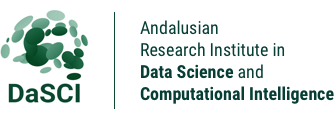The gender gap is visible in research topics and impacts on scientific impact Noticia
Un reciente estudio llevado a cabo por investigadores DaSCI-UGR y la Universidad de Cádiz analiza mediante IA las temáticas mayoritarias en las publicaciones científicas entre hombres y mujeres en el área de biblioteconomía y documentación. Es bien conocido en la literatura que existe una brecha de género en la producción e impacto científico, donde las mujeres tienden a recibir menos citas que sus compañeros hombres. Los resultados de este estudio revelan una relación entre las temáticas abordadas y el impacto académico alcanzado, revelando las disparidades de género en el ámbito académico.





